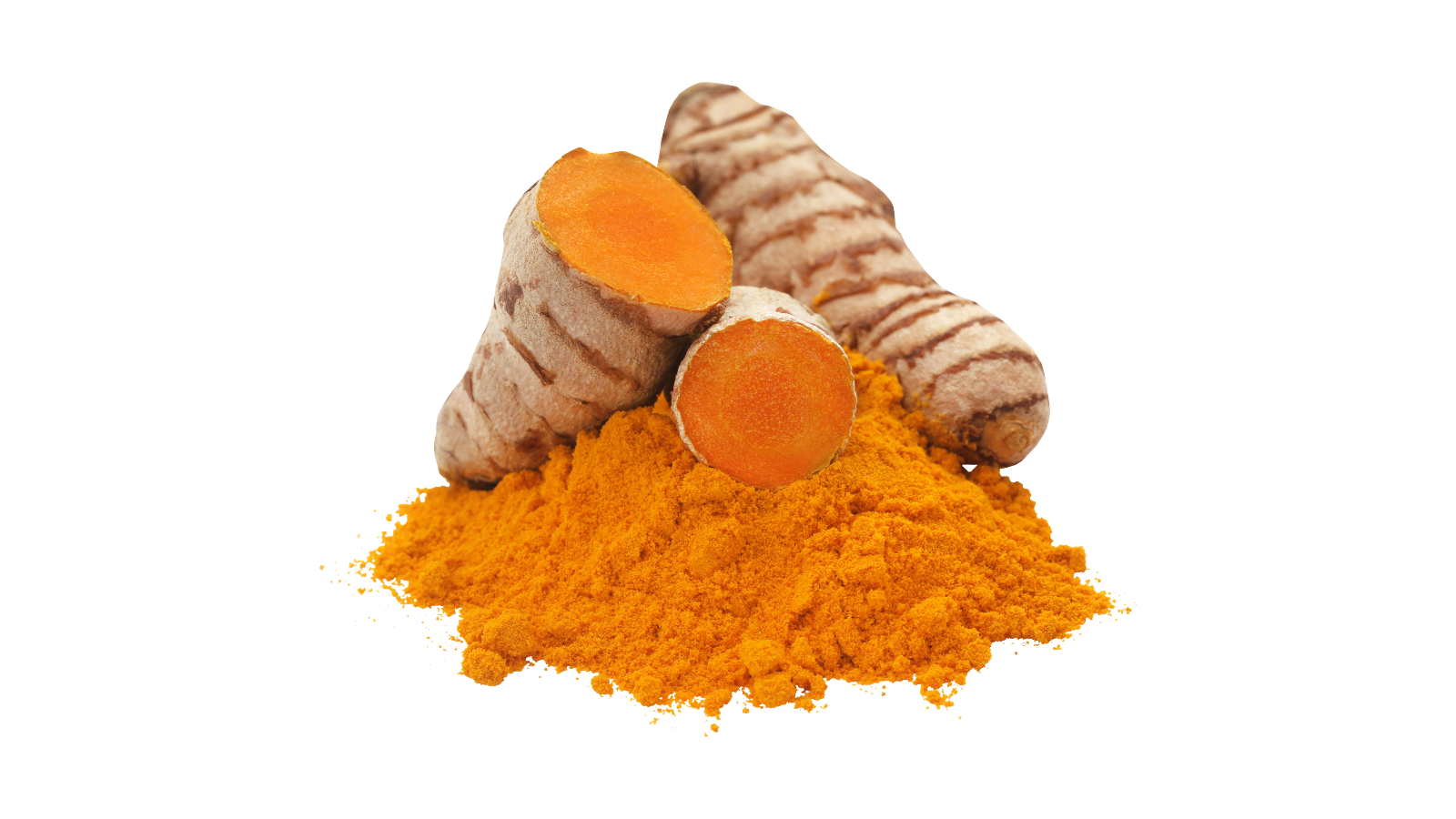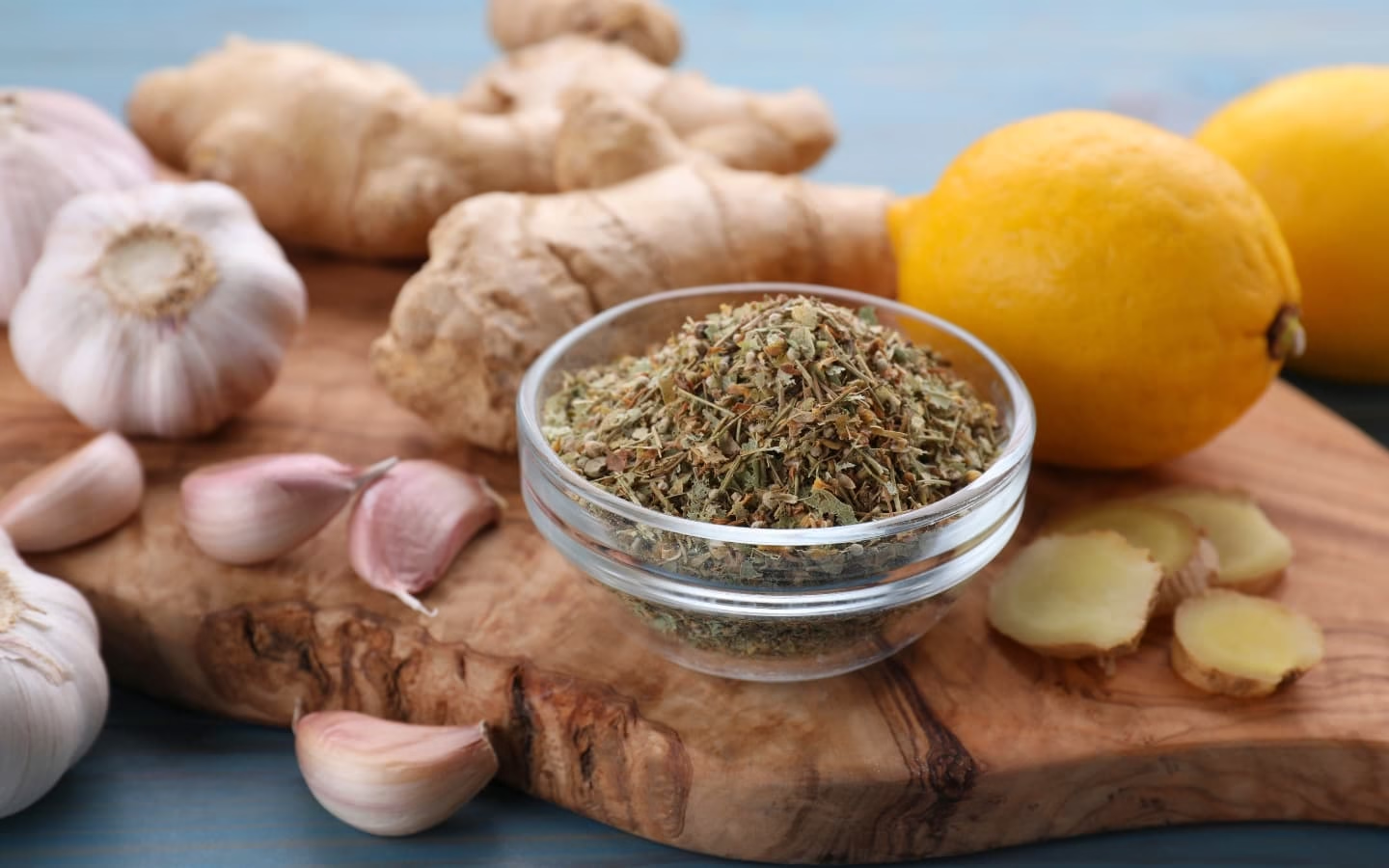Nature has provided us with powerful, time-tested remedies that can help alleviate common ailments and promote overall wellness. Whether you’re looking for a way to soothe a sore throat, ease a headache, or boost your immunity, natural remedies offer an effective, gentle alternative to over-the-counter medications. These remedies often come with fewer side effects and can be easily incorporated into your daily routine to support your body’s natural healing processes.
In this article, we’ll explore five natural remedies for common ailments, offering simple and practical ways to enhance your health and well-being using ingredients found in your kitchen or local health store.
1. Ginger for Digestive Health and Nausea Relief
Ginger has been used for centuries as a natural remedy for various digestive issues. Its active compound, gingerol, has powerful anti-inflammatory and antioxidant properties, making it highly effective for soothing the digestive system and relieving nausea.

How to Use Ginger:
- For Nausea Relief: Drink a cup of ginger tea made by steeping fresh ginger slices in hot water for 10 minutes. You can also chew on a small piece of raw ginger or take ginger capsules to alleviate nausea caused by motion sickness, pregnancy, or indigestion.
- For Digestive Health: Add fresh or powdered ginger to your meals to help stimulate digestion, reduce bloating, and prevent indigestion.
Benefits:
- Reduces nausea and vomiting.
- Eases indigestion and promotes healthy digestion.
- Has anti-inflammatory properties that benefit overall gut health.
2. Honey for Sore Throats and Coughs
Honey is a natural remedy known for its antibacterial and soothing properties. It’s particularly effective in treating sore throats and coughs, providing relief by coating the throat and reducing irritation. Honey also has antimicrobial effects, which can help fight infections that cause respiratory issues.

How to Use Honey:
- For Sore Throats: Mix one tablespoon of raw honey with warm water or herbal tea and sip slowly to soothe an irritated throat.
- For Coughs: Take a spoonful of raw honey before bed to reduce coughing, especially if it’s disrupting your sleep.
Benefits:
- Soothes sore throats and reduces irritation.
- Acts as a natural cough suppressant.
- Has antimicrobial properties that support the immune system.
3. Turmeric for Inflammation and Pain Relief
Turmeric is a bright yellow spice with powerful anti-inflammatory and antioxidant properties, largely due to its active compound, curcumin. It has been widely used in traditional medicine to reduce inflammation, relieve pain, and support joint health. Turmeric is particularly beneficial for people dealing with chronic inflammatory conditions like arthritis.

How to Use Turmeric:
- For Inflammation: Add a teaspoon of turmeric powder to your meals, smoothies, or tea. You can also take turmeric supplements with curcumin for stronger effects.
- For Pain Relief: Mix turmeric with a pinch of black pepper (which enhances curcumin absorption) and warm milk to make a soothing “golden milk” for pain relief.
Benefits:
- Reduces inflammation and pain, especially in joints.
- Boosts antioxidant levels in the body, supporting overall health.
- Supports liver detoxification and digestion.
4. Peppermint for Headaches and Muscle Pain
Peppermint contains menthol, a natural compound that has a cooling effect and acts as a muscle relaxant. It’s commonly used to relieve headaches, tension, and muscle pain. Peppermint oil, in particular, is a versatile natural remedy that can be applied topically or inhaled to provide quick relief from pain and discomfort.

How to Use Peppermint:
- For Headaches: Dilute a few drops of peppermint essential oil with a carrier oil (like coconut oil) and massage it onto your temples, forehead, and back of the neck to alleviate tension headaches.
- For Muscle Pain: Apply peppermint oil to sore muscles or add a few drops to a warm bath to relax tight muscles and ease pain.
Benefits:
- Relieves tension headaches and migraines.
- Soothes muscle pain and spasms.
- Provides a cooling sensation that helps reduce discomfort.
5. Eucalyptus for Respiratory Health
Eucalyptus oil is well-known for its ability to clear the airways and promote easier breathing. Its antimicrobial and decongestant properties make it an effective natural remedy for colds, sinus congestion, and respiratory infections. Inhaling eucalyptus steam or using eucalyptus essential oil can help break up mucus and relieve symptoms of colds and sinusitis.

How to Use Eucalyptus:
- For Respiratory Health: Add a few drops of eucalyptus essential oil to a bowl of hot water. Cover your head with a towel and inhale the steam for 5-10 minutes to relieve congestion and open your airways.
- For Colds and Sinus Congestion: You can also diffuse eucalyptus oil in your home or apply it (diluted with a carrier oil) to your chest and throat to ease cold symptoms.
Benefits:
- Clears nasal passages and relieves sinus congestion.
- Acts as a natural decongestant for respiratory infections.
- Has antimicrobial properties that help fight infections.
Conclusion: Embrace the Healing Power of Natural Remedies
Natural remedies offer gentle yet effective ways to manage common ailments without relying on synthetic medications. From ginger’s digestive benefits to honey’s soothing effects on sore throats, these remedies harness the power of nature to support your body’s healing processes. Incorporating these simple, accessible remedies into your daily life can provide relief from everyday discomforts while promoting overall health and well-being.
Remember, while natural remedies can be highly beneficial, it’s always important to consult with a healthcare provider, especially if you have underlying health conditions or are on medication.

